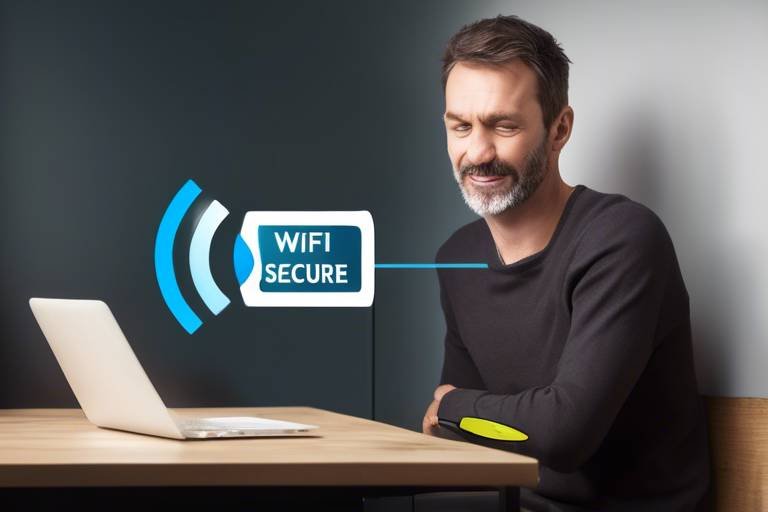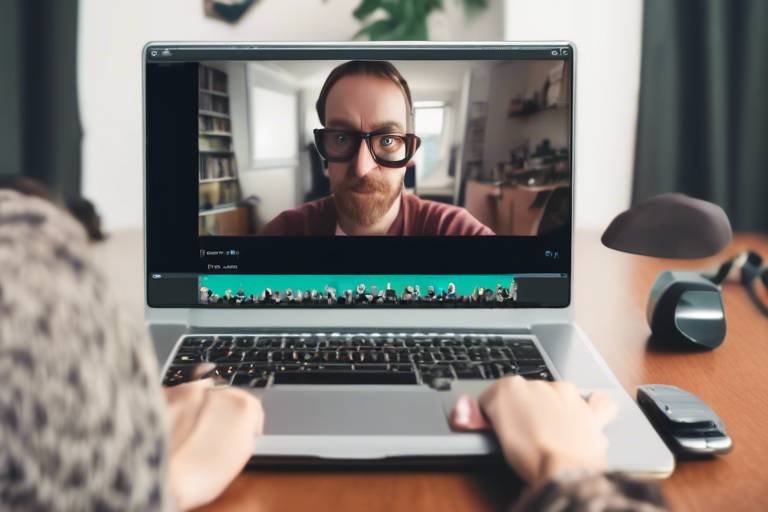How to Keep Your Online Dating Profile Secure
In today's digital age, online dating has become a popular way for individuals to find love, companionship, or even just a casual fling. However, as exciting as it is to connect with potential partners from the comfort of your own home, it’s crucial to prioritize the security of your online dating profile. After all, nobody wants to fall victim to scams or have their personal information compromised while searching for that special someone. So, how can you keep your profile safe while maximizing your chances of finding a genuine connection? Let’s dive into some essential tips and strategies that will help you navigate the online dating landscape securely.
Before you can effectively protect yourself, it’s important to understand the various risks associated with online dating. The digital dating world, while filled with opportunities, also harbors threats that can put your safety at risk. Some common dangers include catfishing, where someone creates a fake profile to deceive others; identity theft, which involves stealing your personal information; and harassment, where unwanted attention can lead to uncomfortable situations. By recognizing these threats, you can stay vigilant and take proactive measures to safeguard your profile.
Your password is your first line of defense against unauthorized access to your dating profile. A robust password should be a mix of letters, numbers, and symbols, making it difficult for anyone to guess. Here are some guidelines to consider when creating your password:
- Use at least 12 characters.
- Incorporate both upper and lower case letters.
- Include numbers and special characters.
- Avoid using easily guessable information like birthdays or names.
Two-factor authentication (2FA) is a feature that adds an extra layer of security to your online accounts. It typically requires not only your password but also a second form of verification, such as a code sent to your phone. Enabling 2FA on dating apps and websites is a straightforward process:
- Go to the security settings of your dating profile.
- Select the option to enable two-factor authentication.
- Follow the prompts to link your phone number or authentication app.
When setting up your account, you may be asked to select security questions for account recovery. Choosing effective security questions is vital; they should be challenging for others to guess but easy for you to remember. Avoid questions with publicly available answers, like your mother’s maiden name or the name of your first pet. Instead, consider questions like:
- What was the name of your childhood best friend?
- In what city did you meet your spouse?
Keeping your profile information up to date is not just about presenting yourself accurately; it’s also a security measure. Regularly reviewing and adjusting your profile settings can help mitigate risks. For instance, if you notice any suspicious activity or if you’ve had a bad experience with someone, it’s wise to update your privacy settings or even delete your profile temporarily. This proactive approach ensures that you maintain control over your personal information and interactions on the platform.
Awareness of potential red flags can help you avoid dangerous situations while dating online. Look out for signs of scams or deceitful behavior, such as:
- A user who avoids video calls or in-person meetings.
- Someone who quickly asks for personal information or money.
- Profiles that seem too good to be true, with overly polished photos or vague descriptions.
Utilizing privacy settings effectively is one of the best ways to safeguard your information on dating platforms. Each site has its own set of privacy controls, and it’s essential to familiarize yourself with them. Adjusting these settings can help ensure that your personal data remains protected from prying eyes. For instance, consider limiting who can see your profile and what information is visible to others.
Limiting the visibility of your profile is crucial for maintaining your security. Most dating platforms offer options for controlling who can view your profile and interact with you. You might want to set your profile to be visible only to friends or verified users. Additionally, managing friend requests and messages can help you filter out unwanted attention and interactions, keeping your experience more enjoyable and secure.
Knowing how to report suspicious behavior is vital in maintaining a safer dating environment for everyone. If you encounter a user or content that raises concerns, take immediate action by reporting it through the platform's reporting feature. Most dating apps have clear guidelines for reporting harassment, scams, or inappropriate behavior. By doing so, you not only protect yourself but also help create a safer community for others.
Q: What should I do if I suspect I’m being catfished?
A: If you suspect you’re being catfished, trust your instincts. Look for inconsistencies in their stories, avoid sharing personal information, and consider suggesting a video call to verify their identity. If they refuse, it’s a significant red flag.
Q: How often should I change my password?
A: It’s recommended to change your password every three to six months, especially if you notice any suspicious activity on your account. Regular updates can help protect your profile from unauthorized access.
Q: Can I block someone on dating apps?
A: Yes! Most dating platforms allow you to block users who make you uncomfortable. This action prevents them from contacting you again and helps maintain your safety.
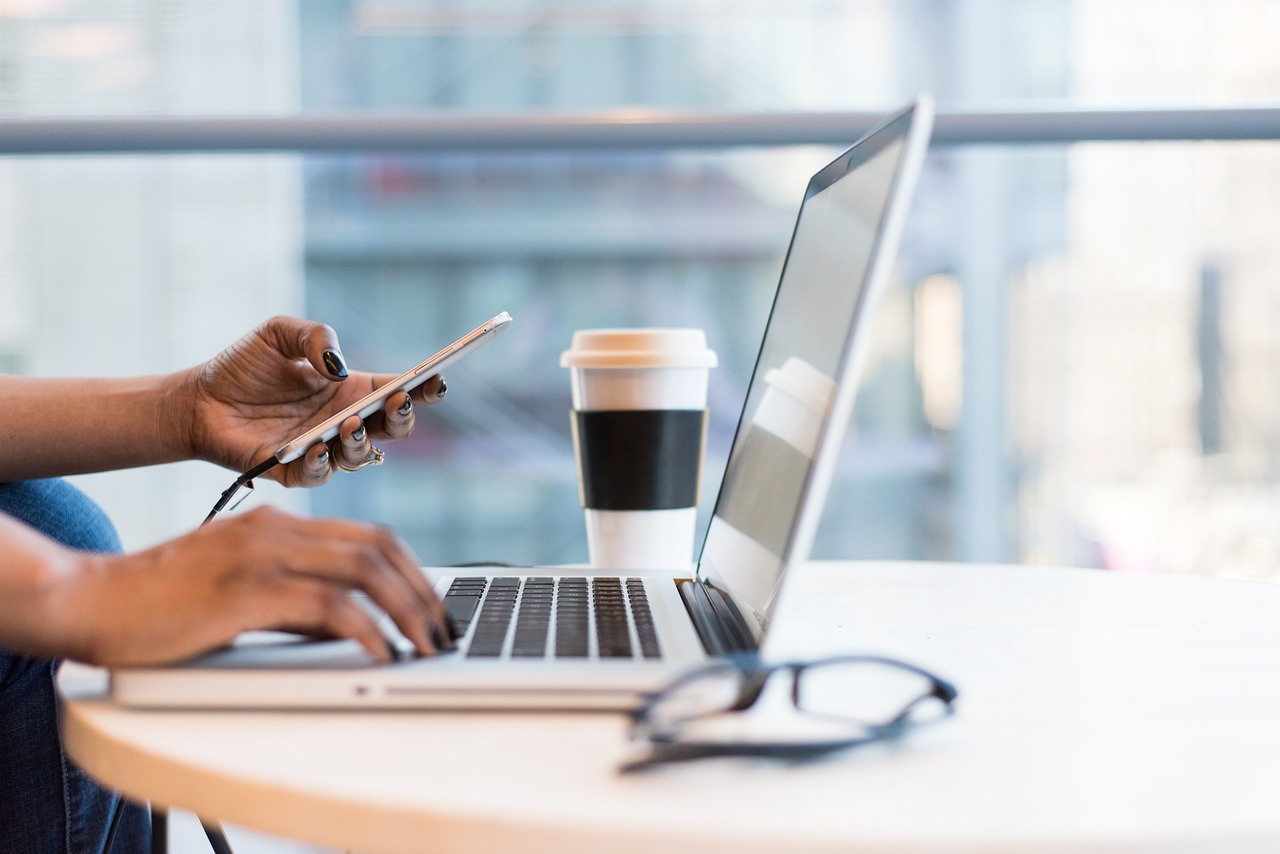
Understanding Online Dating Risks
This article discusses essential tips and strategies to ensure your online dating profile remains safe from potential threats while maximizing your chances of finding a genuine connection.
Online dating can be a thrilling adventure, but it is not without its hazards. As you dip your toes into the vast ocean of potential romantic connections, it's crucial to be aware of the various risks that lurk beneath the surface. Recognizing these threats can empower you to navigate the dating scene with confidence and caution. Some of the most common risks include:
- Catfishing: This is when someone creates a false identity to deceive others. You might think you’re chatting with a charming individual, only to discover they’re using someone else's photos and information.
- Identity Theft: Scammers may attempt to extract personal information from you, which can lead to identity theft. This can happen through seemingly innocent conversations where they ask for sensitive details.
- Harassment: Unfortunately, not everyone on dating platforms has good intentions. Some users may engage in unwanted communication or even stalking.
Understanding these risks is the first step in protecting yourself. It's like knowing the rules of the road before you drive; it prepares you for the unexpected. Just as you wouldn’t drive without a seatbelt, you shouldn’t engage in online dating without a solid awareness of these dangers. Keep your guard up and trust your instincts; if something feels off, it probably is.
Moreover, it’s essential to stay informed about the latest scams and tactics used by online predators. For instance, many catfishers will create elaborate backstories to gain your trust, so it’s vital to verify the authenticity of anyone you interact with. A good rule of thumb is to do a reverse image search on their profile pictures to see if they appear elsewhere on the internet.
In addition, consider the emotional risks involved. Online dating can be a rollercoaster of feelings, and it’s not uncommon to encounter individuals who are not emotionally available or who may play with your feelings. Always prioritize your emotional well-being and be cautious about sharing personal information too soon.
By being aware of these risks, you can take proactive steps to protect yourself while still enjoying the thrill of meeting new people. Remember, the goal is to find a genuine connection, not to fall victim to deceit. Keeping your wits about you is just as important as keeping your profile secure.
A robust password is your first line of defense. This section provides guidelines for creating secure passwords and emphasizes the importance of using unique passwords for different online accounts.
Two-factor authentication adds an extra layer of security. Here, we explain how to enable this feature on dating apps and websites, enhancing your protection against unauthorized access.
Selecting effective security questions is vital for account recovery. This subsection discusses how to choose questions that are difficult for others to guess while being memorable for you.
Keeping your profile information up to date can mitigate risks. This part highlights the importance of routinely reviewing and adjusting your profile settings and content for better security.
Awareness of potential red flags can help you avoid dangerous situations. This section identifies warning signs of scams or deceitful behavior to watch for while interacting with other users.
Utilizing privacy settings effectively can safeguard your information. This section guides you through adjusting privacy settings on various dating platforms to ensure your personal data remains protected.
Limiting visibility of your profile is essential for security. Here, we discuss options for controlling who can view your profile and how to manage friend requests or messages.
Knowing how to report suspicious behavior is crucial. This subsection outlines the steps for reporting users or content that raises concerns, helping to maintain a safer dating environment for everyone.
Q: What should I do if I suspect someone is catfishing me?
A: Trust your instincts. If something feels off, do a reverse image search and consider reaching out to the person to verify their identity. If you’re still unsure, it’s best to end communication.
Q: How can I tell if a dating profile is fake?
A: Look for inconsistencies in their story, overly edited photos, or profiles that lack personal details. Genuine users often have a variety of photos and detailed bios.
Q: Is it safe to meet someone from a dating app in person?
A: Meeting in person can be safe if you take precautions. Always meet in public places, tell a friend where you’re going, and trust your gut feelings.
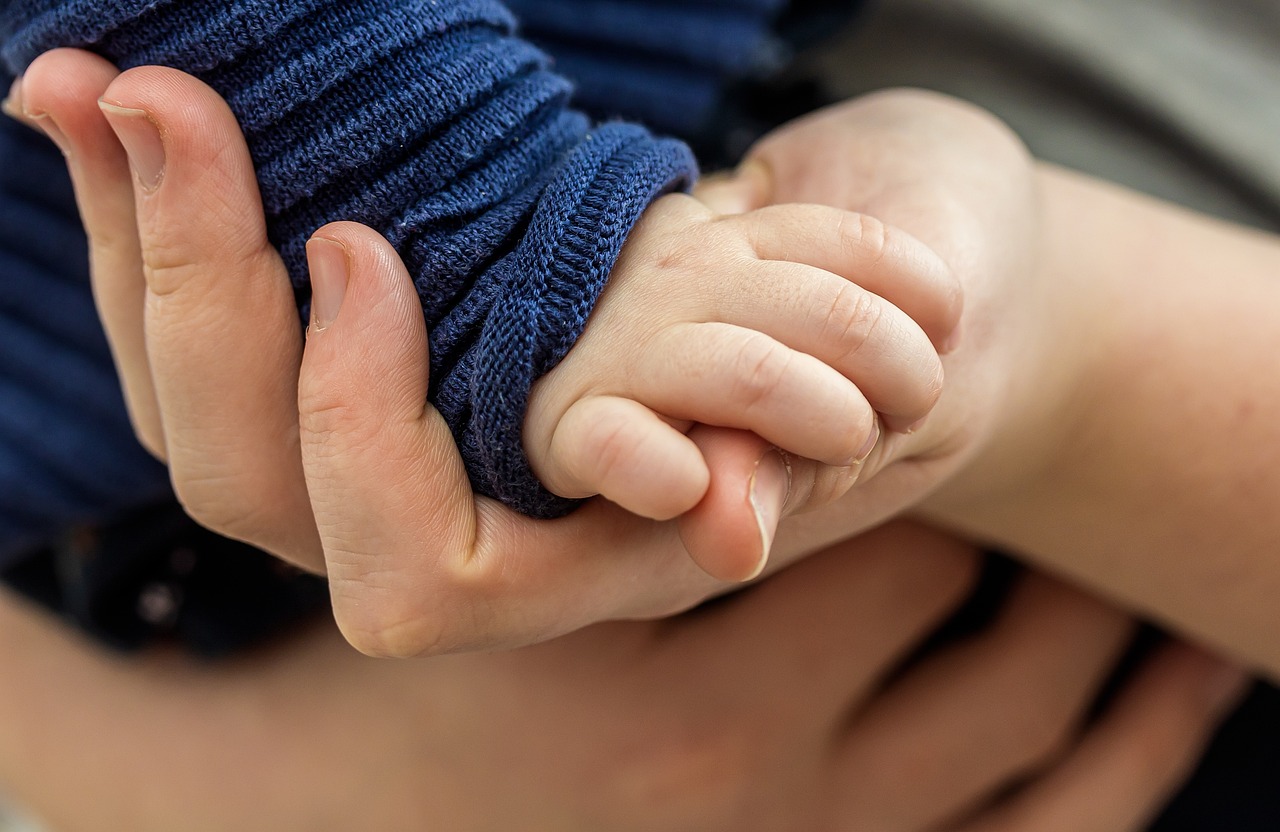
Creating a Strong Password
When it comes to online dating, your password is like a sturdy lock on your front door. It’s your first line of defense against unwanted intruders who may try to access your personal information. A strong password is not just a string of characters; it's a carefully crafted fortress designed to keep your data safe. So, how do you create a password that stands up to the test?
First and foremost, a good password should be at least 12 characters long. The longer the password, the harder it becomes for hackers to crack it. Think of it this way: a password is like a combination lock. The more digits in the combination, the more difficult it is to guess. Now, instead of using easily guessable information like your birthday or your pet's name, consider using a mix of uppercase letters, lowercase letters, numbers, and special characters. For example, instead of "Password123", try something more complex like "P@ssw0rd!2023".
Another tip is to avoid using the same password across multiple sites. If one account gets compromised, it could lead to a domino effect, putting all your other accounts at risk. Imagine if you used the same key for your house, your car, and your office. If someone stole that key, they’d have access to everything! To keep things organized, consider using a password manager. These tools can help you generate and store unique passwords, so you don’t have to remember them all.
Moreover, using passphrases can also be an effective strategy. A passphrase is a sequence of words or a memorable sentence that’s easy for you to remember but hard for others to guess. For instance, “MyDogLovesToChaseSquirrels!” is much stronger than “dog123”. It’s longer, includes uppercase letters, and has a mix of words that are meaningful to you.
Lastly, make it a habit to change your passwords regularly. Just like you wouldn’t keep the same lock on your door forever, you shouldn’t keep the same password indefinitely. Set a reminder every few months to update your passwords. This way, even if a password were to get compromised, it would only be valid for a limited time.
In summary, creating a strong password is crucial for protecting your online dating profile. Remember to:
- Make it long and complex.
- Use unique passwords for different accounts.
- Consider using passphrases.
- Change your passwords regularly.
By following these guidelines, you can significantly enhance your security and focus on what really matters—finding that special someone!

Using Two-Factor Authentication
In today's digital age, where our personal information is just a click away, using two-factor authentication (2FA) has become an essential step in securing your online dating profile. You might be asking yourself, "What exactly is two-factor authentication, and why should I care?" Well, let me break it down for you. 2FA is like having a double lock on your front door. It requires not just your password but also a second piece of information to access your account. This could be a code sent to your phone or an authentication app, ensuring that even if someone gets hold of your password, they still can’t get in without that second factor.
Enabling two-factor authentication is relatively straightforward, and most dating apps and websites have made it user-friendly. Typically, you will find this option in the security settings of your profile. Here’s a quick guide to help you enable it:
- Log in to your dating app or website.
- Navigate to your account settings.
- Look for the security or privacy options.
- Select the option for two-factor authentication.
- Follow the prompts to link your phone number or authentication app.
Once activated, you will receive a verification code every time you log in from a new device or location. This extra layer of security can significantly reduce the risk of unauthorized access to your profile. Imagine this: you’re on a date, and you realize your phone is buzzing with a code while you’re trying to enjoy your evening. That’s a good thing! It means your account is protected, and you can take the necessary steps to secure it immediately if something feels off.
However, it's important to remember that two-factor authentication is not foolproof. While it adds a significant layer of security, it’s still crucial to stay vigilant. Always be cautious about sharing your phone number and ensure that the device receiving your authentication codes is secure. In essence, think of 2FA as wearing a seatbelt while driving; it’s an additional precaution that can keep you safe in case of unexpected situations.
Q: What if I lose my phone with the authentication app?
A: Most services provide backup codes when you set up 2FA. Store these codes safely, as they can help you regain access to your account.
Q: Can I use two-factor authentication on all dating apps?
A: While many popular dating platforms offer 2FA, not all do. Check the security settings of your specific app to see if it's available.
Q: Does using 2FA guarantee my account is safe?
A: While 2FA greatly enhances security, it’s still essential to practice good password hygiene and be aware of phishing attempts.
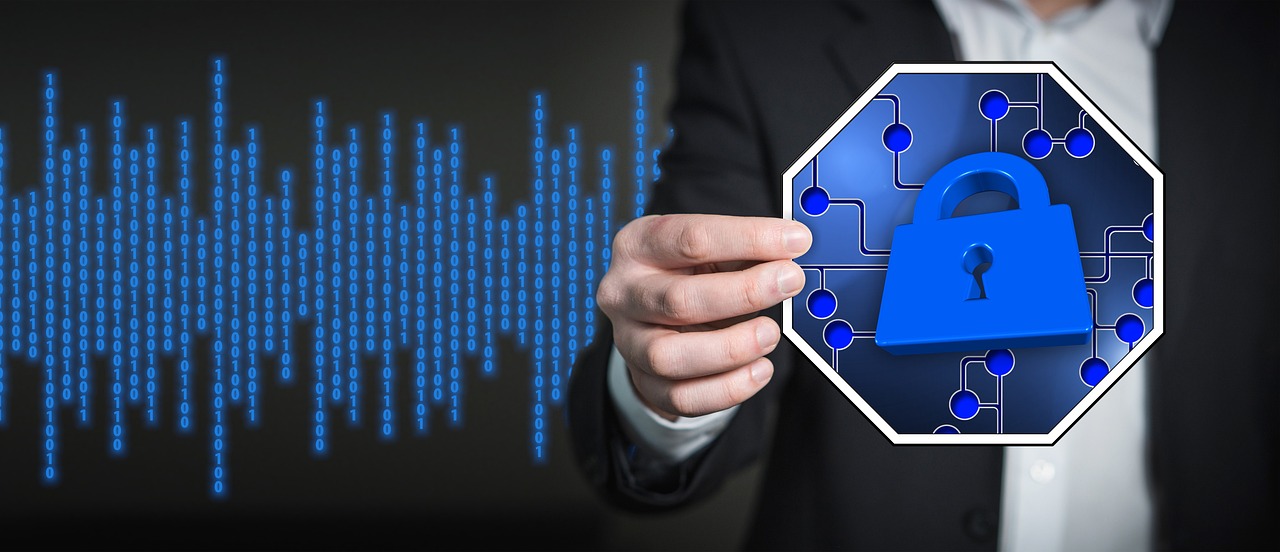
Choosing the Right Security Questions
When it comes to online security, selecting the right security questions can be as crucial as creating a strong password. These questions serve as an additional layer of protection, especially during account recovery. The key is to choose questions that are not only memorable to you but also difficult for others to guess. Imagine someone trying to hack into your account; if they can easily find the answers to your security questions through social media or casual conversation, then your account is at risk.
So, how do you go about choosing the right security questions? First, consider questions that are personal but not widely known. For instance, instead of asking for your mother's maiden name, which can often be found on public records, you might opt for something like "What was the name of your first pet?" This question is less likely to be known by anyone other than you and is easier to remember. Here are some tips to help you select effective security questions:
- Choose Unique Questions: Avoid common questions that might be easy for others to guess.
- Think About Your Memories: Pick questions related to significant personal experiences that are unlikely to be shared publicly.
- Mix It Up: Use a variety of questions rather than sticking to one type, which can make it harder for someone to piece together your answers.
It's also a good idea to avoid questions with answers that can change over time. For example, "What is your favorite color?" could change, while "What was the name of your childhood best friend?" is likely to remain consistent throughout your life. Additionally, ensure that the answers you provide are not easily accessible through your social media or online presence. If someone can find the answer on your Facebook profile, they can easily compromise your account.
Finally, remember the importance of memorization. Once you've chosen your security questions, take a moment to memorize the answers. Writing them down can defeat the purpose of having security questions in the first place. If you ever need to recover your account, having these answers readily available in your mind will make the process smoother and more secure.
By carefully selecting your security questions and answers, you can significantly enhance your online dating profile's security. It's a small step that can lead to a much safer experience as you navigate the world of online dating.
1. What types of questions should I avoid for security?
Avoid questions that can be easily guessed or found online, such as your birth date or the name of your favorite celebrity. Instead, opt for personal experiences that are less likely to be known by others.
2. Can I change my security questions later?
Yes, most dating platforms allow you to change your security questions. It's a good practice to review and update them periodically to ensure your account remains secure.
3. What if I forget the answers to my security questions?
If you forget the answers, it may complicate the account recovery process. Always make sure to choose questions and answers that you can easily remember but are hard for others to guess.
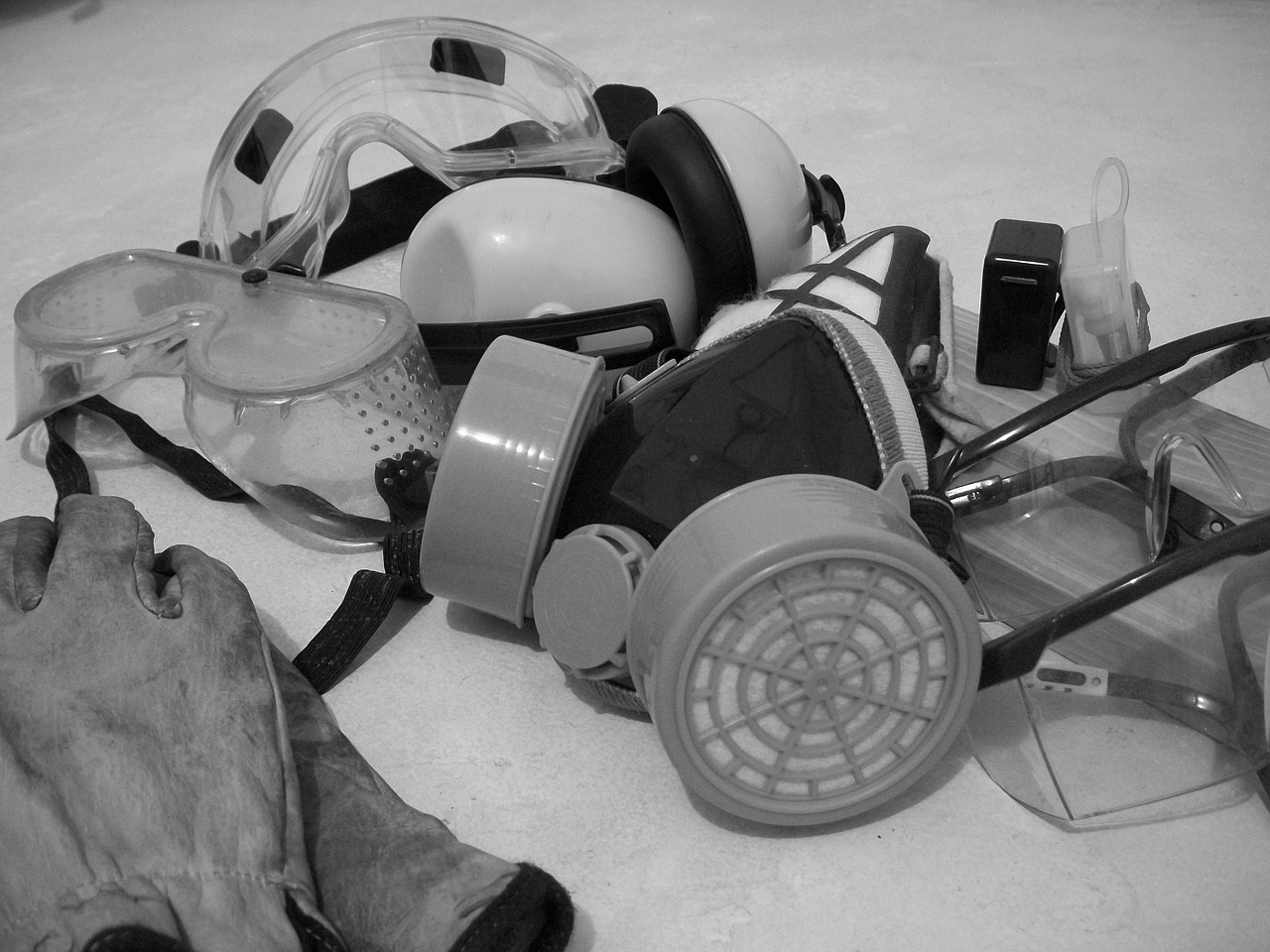
Regularly Updating Your Profile
In the ever-evolving world of online dating, keeping your profile fresh and accurate is more than just a good practice; it’s a vital part of ensuring your safety. Think of your dating profile as a living document—just like a garden, it needs regular attention to thrive. When you update your profile, you're not only showcasing your current interests and experiences but also enhancing your security. Outdated information can attract unwanted attention or even lead to misinterpretations of who you are.
One of the key reasons to regularly update your profile is to reflect any significant changes in your life. Have you recently changed jobs, moved to a new city, or picked up a new hobby? These updates can make you more relatable and approachable to potential matches. Plus, they signal that you’re an active user, which can deter those who might be looking to take advantage of less vigilant profiles. Regular updates help keep your profile relevant, and that relevance can attract genuine connections.
Moreover, it’s essential to routinely review the privacy settings associated with your profile. Just like you wouldn’t leave your front door wide open, you shouldn’t leave your personal information exposed online. By revisiting your settings, you can ensure that only the people you want to see your profile can access it. Regularly checking for any changes in the platform’s privacy policies is also a good idea, as these can affect your security.
Here are some practical tips on how to effectively update your profile:
- Change Your Photos: Refresh your profile pictures every few months. Choose recent photos that genuinely represent you.
- Revise Your Bio: Update your bio to reflect your current interests and experiences. This makes you more relatable and engaging to potential matches.
- Adjust Privacy Settings: Revisit your privacy settings regularly to ensure they align with your current comfort level regarding who can see your profile.
- Review Your Matches: Regularly assess your matches and interactions. If someone feels off, don’t hesitate to unmatch or block them.
In conclusion, regularly updating your dating profile is not just about staying relevant; it’s about safeguarding your experience and enhancing your chances of finding a meaningful connection. So, take a moment every few weeks to reflect on what’s new in your life and make those updates. It’s a small effort that can lead to significant rewards in your online dating journey.
Here are some common questions regarding the importance of regularly updating your online dating profile:
- Why should I update my dating profile regularly? Regular updates keep your profile relevant and engaging, attracting more genuine connections.
- How often should I change my profile pictures? Aim to change your photos every few months or whenever there’s a significant change in your appearance.
- What should I include in my profile updates? Include recent experiences, interests, and any changes in your life situation that might be relevant to potential matches.
- Are there risks to not updating my profile? Yes, outdated information can lead to misunderstandings and may attract unwanted attention from less serious users.

Recognizing Red Flags
When diving into the world of online dating, it's essential to be aware of the red flags that could indicate potential danger or deceit. Just like a seasoned sailor knows to watch for storm clouds on the horizon, you must stay vigilant for signs that something might not be right. After all, the goal is to find a genuine connection, not to fall victim to a scam or harmful situation.
One of the first red flags to watch for is inconsistency in their story. If someone’s details about their life, job, or interests keep changing, it could mean they’re not being truthful. Trust your instincts—if something feels off, it probably is. Moreover, if they are overly eager to meet in person or push for a quick transition from chatting to meeting up, it’s wise to step back and reassess. Healthy relationships grow at a comfortable pace, so don’t let anyone rush you.
Another significant warning sign is when a person avoids sharing personal information. If they’re hesitant to talk about their life or provide basic details, it could be a tactic to keep their true identity hidden. In contrast, a genuine person will be open and willing to share their experiences. To help you identify these behaviors, consider the following common red flags:
- Too Good to Be True: If their profile seems flawless or they shower you with compliments too quickly, proceed with caution.
- Excessive Flattery: While a little flattery is nice, if they constantly praise you without knowing you well, it could be a tactic.
- Requests for Money: This is a major red flag. If someone asks for financial help or personal favors, it’s time to cut ties.
- Unwillingness to Video Chat: If they make excuses to avoid video calls, it could indicate that they’re hiding something.
Additionally, trust your gut feelings. If something feels off about a conversation or interaction, don’t ignore it. Sometimes, your intuition can be your best ally. If you find yourself in a situation that raises concerns, don’t hesitate to reach out to friends or family for advice. Sharing your experiences can provide clarity and support.
Ultimately, recognizing red flags is about being aware and educated. The more you know what to look for, the better equipped you’ll be to navigate the online dating landscape safely. Remember, your safety and well-being should always come first. If you encounter any suspicious behavior, it’s essential to report it to the platform and consider blocking the user to protect yourself.
Q: What should I do if I encounter a red flag while dating online?
A: Trust your instincts and take immediate action. If something feels wrong, consider ceasing communication with the person and reporting them to the dating platform.
Q: Are there specific phrases or behaviors that indicate someone might be lying?
A: Yes, look for inconsistencies in their story, vague responses, or reluctance to share personal details. If they avoid answering questions directly, it could be a sign of deceit.
Q: How can I ensure my safety while dating online?
A: Always prioritize your safety by keeping personal information private, meeting in public places, and informing friends or family about your plans. Trust your gut feelings and don’t rush into anything.

Privacy Settings and Controls
In the vast ocean of online dating, where connections are just a swipe away, it's essential to keep your personal information as secure as a treasure chest buried deep in the sand. Utilizing privacy settings effectively can act as your first line of defense, ensuring that your private data remains just that—private. Most dating platforms offer a variety of settings that allow you to control who sees your profile, what information is displayed, and how you interact with others. By taking the time to adjust these settings, you're not just protecting yourself; you're also enhancing your overall dating experience.
First and foremost, it's crucial to understand the default privacy settings of the dating app or website you are using. Many platforms have their settings set to public by default, which means anyone can see your profile, photos, and even your interests. This can be a recipe for disaster if you’re not careful. To avoid unwanted attention or harassment, take a moment to dive into your account settings and adjust your visibility options. You might find that you can limit your profile to only those users who match your preferences or who you have 'liked' in return.
Moreover, consider the importance of controlling who can see your profile. This is not just about limiting visibility; it’s about creating a safe space for yourself. Some platforms allow you to set your profile to be visible only to friends or mutual connections. This feature can significantly reduce the chances of encountering unwanted messages or interactions. If you’re unsure how to change these settings, most platforms provide user-friendly guides or customer support to help you navigate through the process.
Another essential aspect of privacy settings is managing friend requests and messages. When you receive a request from someone you don't know, it’s tempting to accept it out of curiosity. However, this can lead to uncomfortable situations. Always take a moment to review the profile of the person sending the request. Look for red flags such as incomplete profiles, generic photos, or suspicious behavior. If something feels off, trust your instincts and either ignore or block the request. By being selective, you can maintain a safer online dating environment.
Additionally, don't underestimate the power of reporting suspicious activity. Most dating platforms have built-in mechanisms for reporting users who exhibit harassment, deceitful behavior, or any form of misconduct. Familiarize yourself with these features and use them whenever necessary. By reporting these users, you're not only protecting yourself but also helping to create a safer community for everyone. Remember, your voice matters, and every report contributes to a more secure online dating experience.
In summary, taking control of your privacy settings is akin to building a fortress around your personal information. By limiting who can see your profile, managing friend requests wisely, and reporting suspicious activity, you can significantly enhance your online dating experience. After all, the goal is to connect with genuine individuals while keeping your information safe and secure. Don't let your guard down—stay vigilant and proactive in protecting your online presence!
- What are privacy settings in online dating? Privacy settings are options provided by dating platforms that allow users to control who can view their profiles and personal information.
- How can I change my privacy settings? You can typically change your privacy settings by navigating to your account settings within the app or website and selecting the privacy options available.
- What should I do if I encounter suspicious behavior? If you encounter suspicious behavior, report the user through the platform's reporting feature and consider blocking them to prevent further contact.
- Can I make my profile visible only to certain people? Yes, many dating platforms allow you to customize your profile's visibility settings so that only certain users can see your profile.
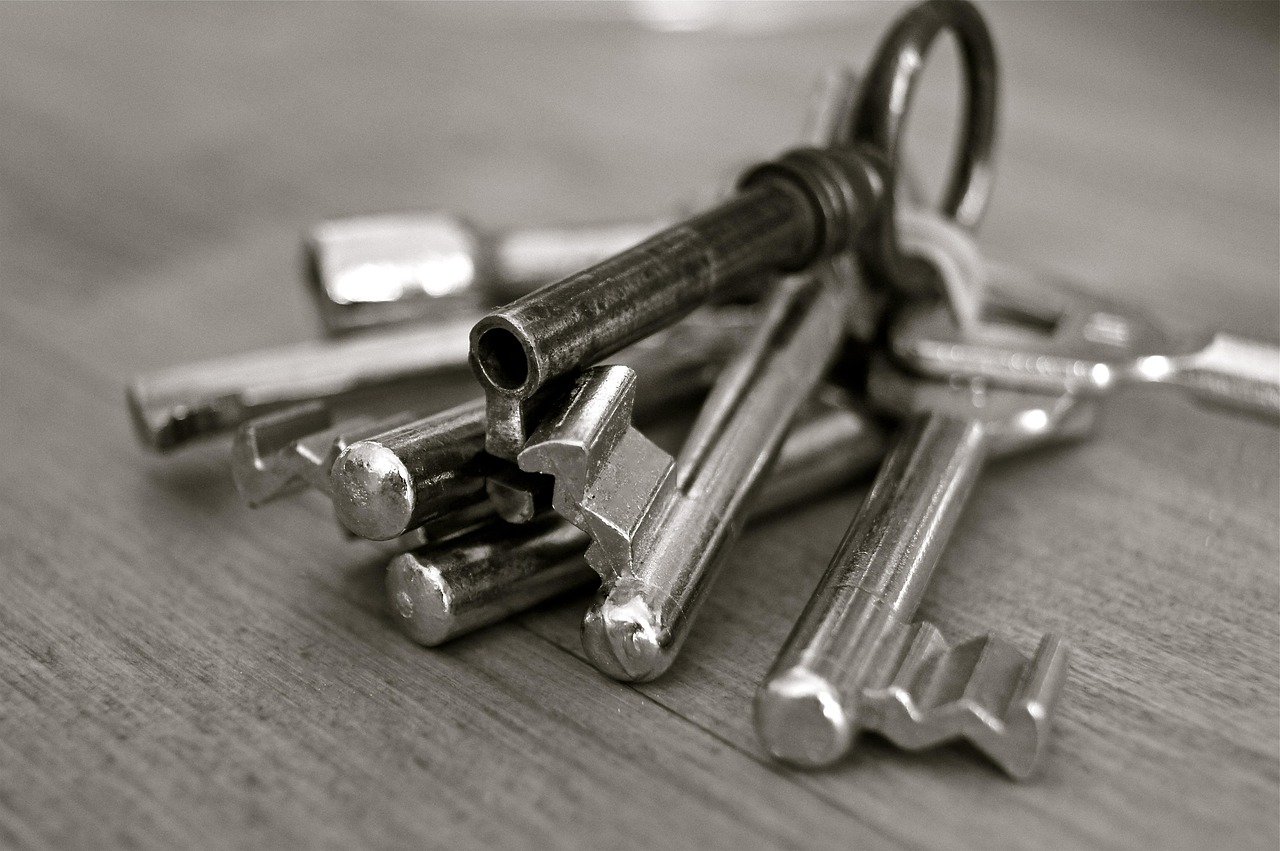
Controlling Who Can See Your Profile
In the world of online dating, ensuring that the right people have access to your profile is not just a matter of preference; it's a crucial aspect of your overall safety. Think of your dating profile as a window into your life—would you leave that window wide open for anyone to peek through? Absolutely not! Therefore, controlling who can see your profile is essential to protect your personal information and maintain your privacy.
Most dating platforms offer a variety of privacy settings that allow you to customize who can view your profile. This means you can take charge of your online presence and decide whether you want your profile to be visible to everyone, only to friends, or to specific individuals. To get started, navigate to the settings section of your chosen dating app or website. Here, you’ll find options to adjust your visibility and select who gets to see your profile.
Here are some important features you might encounter:
- Public Profile: This setting allows anyone on the platform to see your profile, which can increase your chances of matching but may expose you to unwanted attention.
- Friends Only: By limiting visibility to just friends or connections, you can create a more secure environment where only people you trust can view your information.
- Custom Settings: Some platforms allow you to create custom lists, enabling you to choose specific individuals who can or cannot see your profile.
It's also essential to regularly review your friend requests and messages. Sometimes, individuals may send requests or messages that raise red flags. Trust your instincts—if someone feels off, it’s perfectly okay to ignore or block them. Remember, your safety should always come first. You can also consider setting your profile to 'invisible' or 'private' when you’re not actively looking for connections. This feature allows you to browse without being seen, giving you a chance to explore the platform without the pressure of incoming messages or attention.
Moreover, be cautious about sharing personal information in your profile. Avoid including sensitive details such as your phone number, home address, or workplace. Instead, focus on sharing interests and hobbies that can spark conversation without compromising your security. The goal is to attract genuine connections while keeping your personal life shielded from potential threats.
In conclusion, controlling who can see your profile is a fundamental step in ensuring a safe and enjoyable online dating experience. By utilizing privacy settings effectively, you can navigate the dating world with confidence, knowing that you’re in control of your information. So, take the time to adjust your settings and keep your profile as secure as possible—because when it comes to online dating, safety should always be your top priority.
- How can I change my profile visibility settings? - Navigate to the settings section of your dating app or website, and look for options related to privacy or visibility.
- What should I do if I receive suspicious messages? - Trust your instincts. You can block or report the user to the platform.
- Is it safe to share my phone number on dating apps? - It’s best to wait until you feel comfortable with someone before sharing personal information like your phone number.

Reporting Suspicious Activity
In the world of online dating, ensuring your safety is paramount. If you encounter suspicious behavior, knowing how to report it can make a significant difference not only for your own experience but also for the community at large. Many dating platforms are equipped with features that allow users to flag inappropriate conduct or report profiles that seem dubious. But how do you go about this? It’s simpler than you might think!
First and foremost, stay vigilant. If someone is making you uncomfortable—whether through messages that are overly aggressive, requests for personal information, or even just a gut feeling that something isn’t right—it’s crucial to take action. Most dating apps and websites provide a straightforward reporting option. This is often found in the user’s profile or chat interface, usually represented by a small icon or link that says “Report” or “Flag.”
When you choose to report someone, you’ll typically be prompted to provide a reason for your action. Common reasons include:
- Harassment or bullying
- Catfishing or impersonation
- Spam or unsolicited messages
- Inappropriate content or behavior
Being specific about the issue can help the platform take appropriate action. If possible, include screenshots of conversations or any relevant information that could assist in the investigation. Remember, your report can help protect not just yourself but also other users who might be targeted by the same individual.
In addition to reporting, it’s wise to block the user. Blocking prevents them from contacting you further and can provide peace of mind. Most platforms have a simple blocking feature, allowing you to cut off all communication with just a click.
Finally, if you feel threatened or believe that your safety is at risk, don’t hesitate to reach out to local authorities. Your safety should always come first, and they can provide assistance and guidance on how to handle the situation.
In conclusion, reporting suspicious activity is an essential part of maintaining a safe online dating environment. By taking proactive steps, you contribute to a community where everyone can feel secure while searching for meaningful connections.
Here are some common questions that users often have regarding reporting suspicious activity in online dating:
- What should I do if I feel uncomfortable with someone? If someone makes you feel uncomfortable, report them immediately and consider blocking them.
- Can I report a user without them knowing? Yes, when you report a user, your identity remains confidential.
- What happens after I report someone? The dating platform will review the report and take appropriate action, which may include warning the user or banning them.
- Is it safe to meet someone in person after chatting online? Always trust your instincts and meet in a public place. Consider informing a friend about your plans.
Frequently Asked Questions
- What are the common risks associated with online dating?
Online dating can expose you to various risks such as catfishing, where someone pretends to be someone else, identity theft, and even harassment. Being aware of these threats helps you stay vigilant and protect yourself while searching for genuine connections.
- How can I create a strong password for my dating profile?
A strong password should be a mix of upper and lower case letters, numbers, and special characters. Aim for at least 12 characters and avoid using easily guessable information like birthdays or names. Remember, using unique passwords for different accounts is crucial!
- What is two-factor authentication, and how can I enable it?
Two-factor authentication (2FA) adds an extra layer of security by requiring a second form of verification, like a code sent to your phone. To enable it, go to your account settings on the dating app or website and look for the security options. This simple step can significantly enhance your account's protection.
- How do I choose effective security questions?
When selecting security questions, choose ones that are personal yet not easily guessed. For instance, instead of asking for your mother’s maiden name, consider questions about your favorite book or the name of your first pet. Make sure they are memorable to you but challenging for others!
- Why is it important to regularly update my dating profile?
Regularly updating your profile helps keep your information current and can reduce risks. It also allows you to adjust privacy settings and profile visibility, ensuring you maintain control over who sees your information.
- What are some red flags to watch for in online dating?
Be on the lookout for signs of deceit, such as someone who avoids sharing personal information, insists on moving the conversation off the platform quickly, or uses generic responses. Trust your instincts—if something feels off, it probably is!
- How can I adjust my privacy settings on dating platforms?
Most dating platforms have privacy settings in your account options. You can limit who can see your profile, control friend requests, and manage who can message you. Take some time to explore these settings to enhance your security.
- What should I do if I encounter suspicious activity?
If you notice any suspicious behavior, such as inappropriate messages or profiles that seem fake, report them immediately. Most dating platforms have a reporting feature that helps keep the community safe. Don't hesitate to take action!




